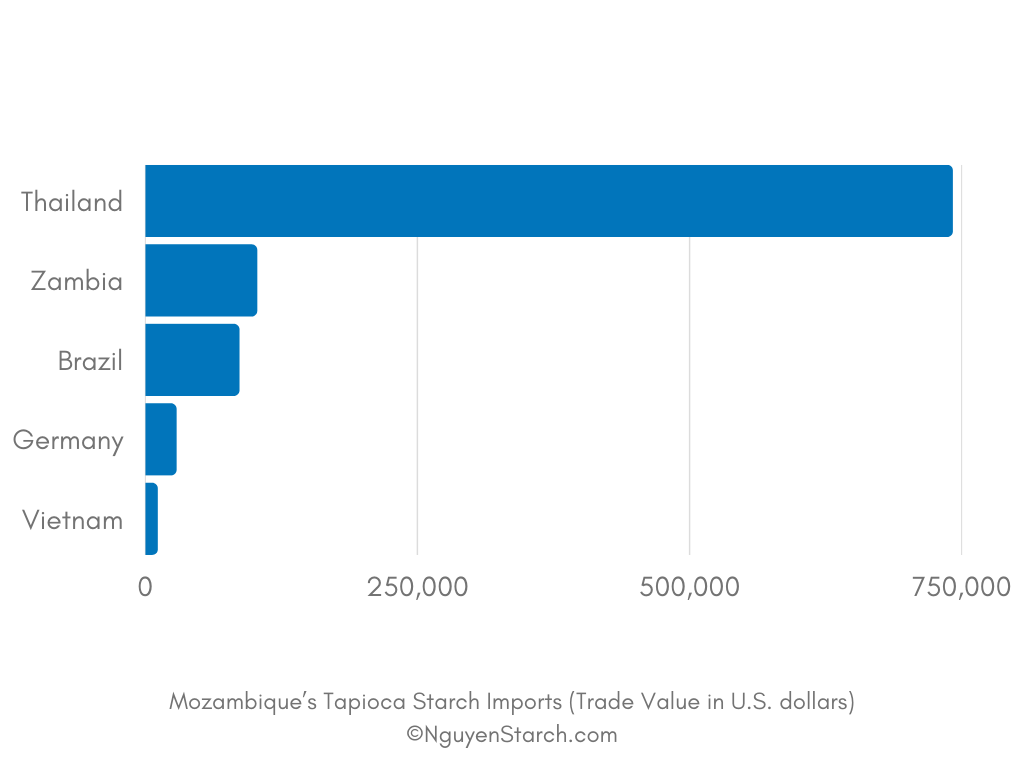Mozambique, an active participant in the global tapioca starch market, has witnessed significant developments in its import activities.

Imports
In 2021, Mozambique imported tapioca starch worth $959k, positioning the country as the 46th largest importer of this product globally. Tapioca starch ranked as the 1075th most imported commodity in Mozambique during the same year. Mozambique primarily imports tapioca starch from Thailand ($741k), Zambia ($102k), Brazil ($86k), Germany ($28.2k), and Portugal ($749).
Mozambique experienced notable growth in its import markets for tapioca starch between 2020 and 2021. Key expansions were observed in Thailand ($512k), Zambia ($102k), and Brazil ($84.5k), indicating a rising demand for tapioca starch in Mozambique from these countries.
| Continent | Country | Trade Value |
| Africa | South Africa | 47 |
| Africa | Zambia | 102,344 |
| Asia | Thailand | 741,231 |
| Europe | Germany | 28,243 |
| Europe | Portugal | 749 |
| South America | Brazil | 85,997 |
Tariffs
In 2018, the average tariff imposed on tapioca starch imports in Mozambique was 7.13%. Notably, Burundi, Benin, Burkina Faso, the Central African Republic, and Cote d’Ivoire implemented the highest import tariffs on tapioca starch, with a Most Favoured Nation duty rate treatment of 7.5%. These tariffs reflect the trade policies and protective measures enforced by these countries to regulate the inflow of tapioca starch imports.
Conclusion
Mozambique’s involvement as an importer of tapioca starch underscores its active participation in the global market. The country has witnessed significant growth in its import markets, with Thailand, Zambia, and Brazil emerging as key sources of tapioca starch for Mozambique. Additionally, imports from Germany and Portugal contribute to meeting Mozambique’s tapioca starch demands. As trade policies and tariffs shape the industry, stakeholders in the tapioca starch trade must remain attentive to evolving market dynamics to harness opportunities and effectively navigate challenges in Mozambique’s dynamic market environment.
Data from BACI
